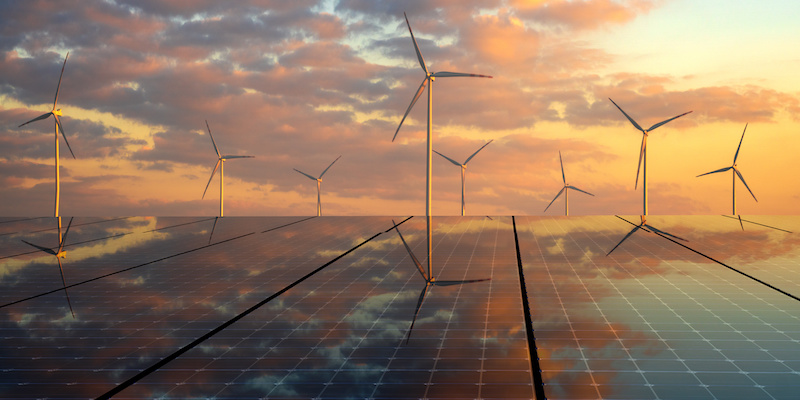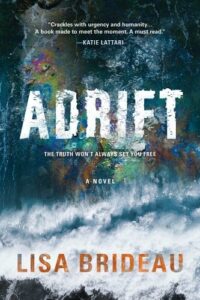I spend my days working on municipal climate change policy. Each day I confront details of the dire future ahead if we don’t collectively change how we live in a very big way.
There is so much potential for good—for a shift to systems that make us all healthier and more connected and resilient, to correct the injustices baked into our existing systems. But change is hard and often frustratingly slow. And we aren’t currently cutting our fossil fuel use fast enough to avoid climate catastrophe.
So why in the world would I choose to come home from my day job to hunch over a different laptop and spend yet more time thinking about climate change in the context of a suspense novel? As my novel winds its way to publication on May 9, I’ve been contemplating this a lot.
My answer is two-fold.
Reason One: climate change impacts are here. It’s part of the fabric of life and can’t be avoided now. All of art, including literature, has to speak to this issue of our times. In The Great Derangement, Amitav Ghosh takes the arts to task for their failure on this front (as of 2016): “When future generations look back upon the Great Derangement, they will certainly blame the leaders and politicians of this time for their failure to address the climate crisis. But they may well hold artists and writers to be equally culpable—for the imagining of possibilities is not, after all, the job of politicians and bureaucrats*.”
I decided to take Ghosh’s words to heart and set a story against the backdrop of a climate-impacted future. No shying away.
This sounds a bit like torture—to spend all day struggling to make change to avoid the worst of the climate impacts we’re on track for, then sitting and imagining in vivid detail a version of that future. But it turned out to be helpful in confronting my own climate anxiety.
To make it fun and not completely dire, I chose to craft a fictional future where we had already done some of the big necessary things we’re currently struggling with. In Adrift you’ll find a Canada that is almost entirely powered by renewable energy; how dreamy!
But I also needed to made a realistic 2038. Doing so forced me to put on paper the scary stuff I try not to think about—the source of my climate anxiety—the world we’re creating, with failing ecosystems, where extreme weather events hit one after the other, crisis after crisis, each one with a cost in precious lives.
Building the world of Adrift was like taking the monster out of the closet and studying it in daylight. Yes, it’s still gargantuan and scary and capable of causing harm, but it’s not as scary as a nebulous shadowy figure lurking in the dark.
Reason Two is that I know how badly we need more people engaged and active in helping us push for a different, better future, and I hope entertaining fiction showing climate change (and solutions) can help tip people into action.
It’s difficult to engage people on the topic of getting off fossil fuels. Admit it, your eyes glazed over a bit at those words, didn’t they?
I hope compelling, entertaining fiction can be a way for all of us to look directly at the monster without running away. People pick up suspense novels expecting to read scary things, after all. And, having seen the monster, perhaps we’ll take the necessary action to defang it.
If you don’t work in climate policy, the optimistic aspects of the future I crafted in Adrift may be too subtle to spot, it may appear to be just a dystopia. In that case, the thing to take away is this: it’s only 2023 and we are in the enviable position of having a sliver of time to change things before that all awfulness comes to be.
Yes, the monster is big but there sure are a lot of us, if we all get involved and get to work.
If you’re inspired and not sure where to start, here’s a game plan to consider:
- Think about what personal actions you can take to burn less fossil fuel. Climate change is caused by burning fossil fuels: gas, natural gas, oil, coal, propane, methane. Find ways in your life to cut these out where you can. Change your gas hot water heater to electric, do more trips by bike or transit or carpool, find alternatives to air travel, use an induction cooktop instead of a gas stove.
- In addition to the fossil fuels you burn yourself (home heating, driving) – it also takes energy to fabricate the goods we buy, likely energy from burning fossil fuels. Go easy on the planet and try to consume less stuff, buy second-hand if you can, reuse, share, buy things that will last.
- Talk about climate change with others. Polls show most people do care about climate change but think they’re alone in caring! Share your hopes & concerns. Tell politicians at every level of government (school boards, city council, state government, federal) that you demand they take bold action now. Write letters. Show up to meetings. Support them when they are trying to make changes to the system that will provide real alternatives to fossil fuel options. They need ongoing, vocal support to make these changes! This is critical because, for example, we can’t expect people to replace driving trips with public transit if there isn’t a functioning transit system.
- Join an organizations working on systems change to tackle the big carbon pollution sources that can’t be fixed by individual actions. Pick your area of passion and add your voice and talent to their ongoing efforts. We accomplish so much more collectively and you’ll feel energized and hopeful working with others.
- Keep learning – particularly about climate justice. Digest books/articles/podcasts on climate change. Follow climate scientists and activists who have been working on this for years; two great women to start with: Mary Annaïse Heglar and Katherine Hayhoe.
Don’t be overwhelmed. Do what you can now and build over time. We don’t need everyone to be perfect, we need everyone to be engaged and doing their best.
* As a bureaucrat, I quibble with Ghosh on this last part; my colleagues and I spend a lot of time imagining possible futures; but we need more voices bringing different perspectives for sure, so I’ll let it slide.
***


















